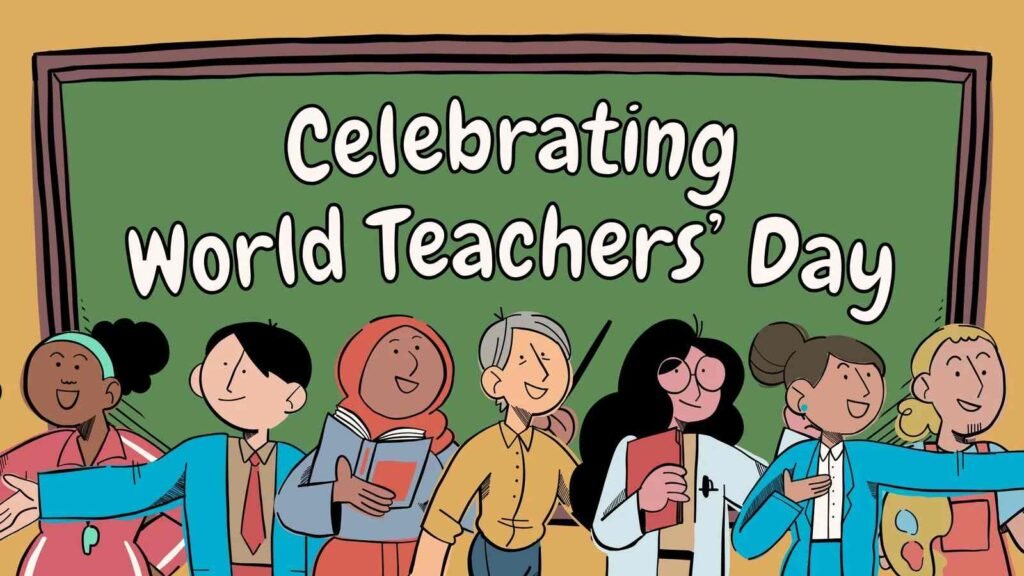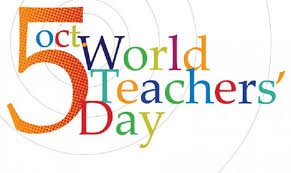When October 5, 2025, arrives, nations around the world will pause to celebrate World Teachers’ Day—but this year’s message carries a deeper purpose. Instead of simply honouring individual educators, the theme “Recasting Teaching as a Collaborative Profession” urges a shift: for teachers to flourish, they must be part of a supportive professional community.
Too often, teaching is treated as an isolated pursuit. Many educators feel overwhelmed, scarcely able to pause and reflect, let alone engage with peers in a meaningful way. Yet because education is dynamic—shaped by changing technology, pedagogy, and student needs—teaching must evolve too. Collaboration offers a path forward, enabling teachers to co-design lessons, share evidence-based practices, and shoulder the challenges together.
This isn’t just lofty rhetoric. The stakes are high. According to the Teacher Task Force, 2025’s celebrations will revolve around global and regional data on teacher workforce growth, qualifications, and training—signalling renewed urgency on ensuring educators are properly supported. Meanwhile, UNESCO and its partners are mobilising actors across sectors to anchor teacher collaboration within policy and systems, according to UNESCO.
In other words, this World Teachers’ Day is a call not simply to thank teachers, but to reimagine how we structure, value, and sustain the profession itself.

Table of Contents
Uneven Support and the Cost of Isolation
To understand why collaboration is essential, one must look at the gaps teachers face across many regions—including Nigeria. In many low-income countries, fewer than 15 % of governments embed continuing professional development (CPD) into formal policy, especially at the primary level. Likewise, in sub-Saharan Africa, the percentage of trained primary teachers dropped from 85 % in 2000 to 69 % by 2024; in secondary schools, the fall was even steeper.
These weaknesses do more than stunt teacher growth—they undermine educational equity. In underserved or remote areas, educators often find themselves cut off from peer networks, resources, and innovation. Teacher turnover spikes when professionals feel undervalued, unsupported, or professionally stifled.
Compounding the problem is a projected global shortfall: UNESCO estimates that by 2030, we will require an additional 44 million teachers to meet universal primary and secondary education goals. Without mechanisms that allow teachers to grow together, share burdens, and sustain motivation, many of those gaps will persist.

From Policy to Practice: Making Collaboration Real
If recasting teaching as collaborative is more than a slogan, then systems must embed mechanisms that allow it to flourish. Here are five key levers national and local education systems should adopt:
- Institutionalise collaborative roles and time
Schools should build in structures like shared planning periods, co-teaching teams, peer observation rounds, or professional learning communities. Teachers should have scheduled time to meet, reflect, and refine together—time recognised and resourced by school leadership. - Integrate collaboration into evaluation and career pathways
When appraisal systems reward only individual performance, they undermine teamwork. Instead, leadership and promotion criteria ought to value collective efforts—team initiatives, mentoring contributions, collaborative curriculum design—as legitimate measures of professional excellence. - Empower teachers in decision-making
Policies crafted top-down often miss the day-to-day realities in classrooms. Inviting teachers into co-design, social dialogue, and governance structures helps align reforms with lived practice—and builds ownership and accountability. The Santiago Consensus adopted at the World Summit on Teachers reinforces the importance of giving teachers a voice in reforms. - Close access gaps—especially in remote or marginal areas
If collaboration is only available in urban or well-resourced settings, many teachers remain stranded. Innovative use of digital platforms, regional teacher networks, and peer clusters must reach even the most isolated schools. - Foster a culture of trust and professional agency
Collaboration requires psychological safety: teachers must feel confident that sharing questions, mistakes, and struggles will not be penalised. Elevating teacher agency—from root in classroom decisions to system reforms—helps build trust, legitimacy, and effectiveness.
The global celebration for 2025 will be held in Addis Ababa on 3 October, alongside the Pan-African Conference on Teacher Education (PACTED 2025). This underscores both the regional urgency and the opportunity to model collaborative systems.

A Turning Point for Teaching—If We Dare to Change
On World Teachers’ Day 2025, let us recognise that teaching in isolation is no longer adequate for the demands of tomorrow’s world. As Nigeria and other countries navigate education in an era of growing complexity, collaboration is not a luxury—it’s an imperative.
For Nigeria in particular, this moment demands action: restructuring schools so teachers work together, designing inclusive CPD systems, extending support into rural and underserved schools, and integrating teachers into policy decisions.
When collaboration becomes the default rather than the exception, three things happen: teachers feel supported and remain motivated; pedagogical practice becomes richer and more responsive; and students reap the benefits of more coherent, evolving, evidence-based instruction.
May this World Teachers’ Day be more than a celebration: may it be a turning point—one where commitment transforms into long-term systems change, and where no teacher ever has to teach alone again.
Join Our Social Media Channels:
WhatsApp: NaijaEyes
Facebook: NaijaEyes
Twitter: NaijaEyes
Instagram: NaijaEyes
TikTok: NaijaEyes
READ THE LATEST EDUCATION NEWS




